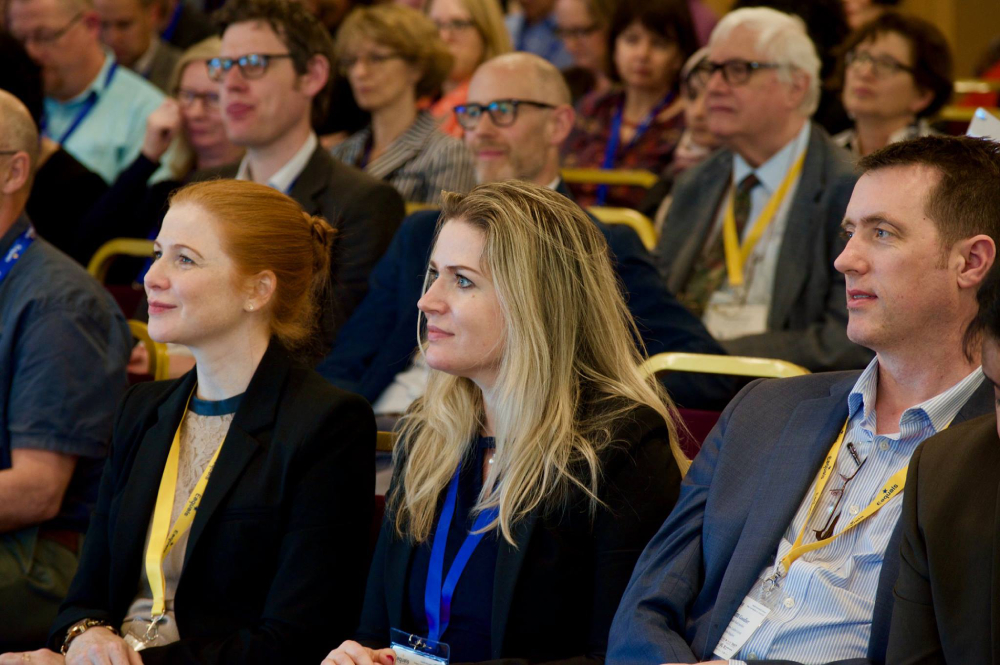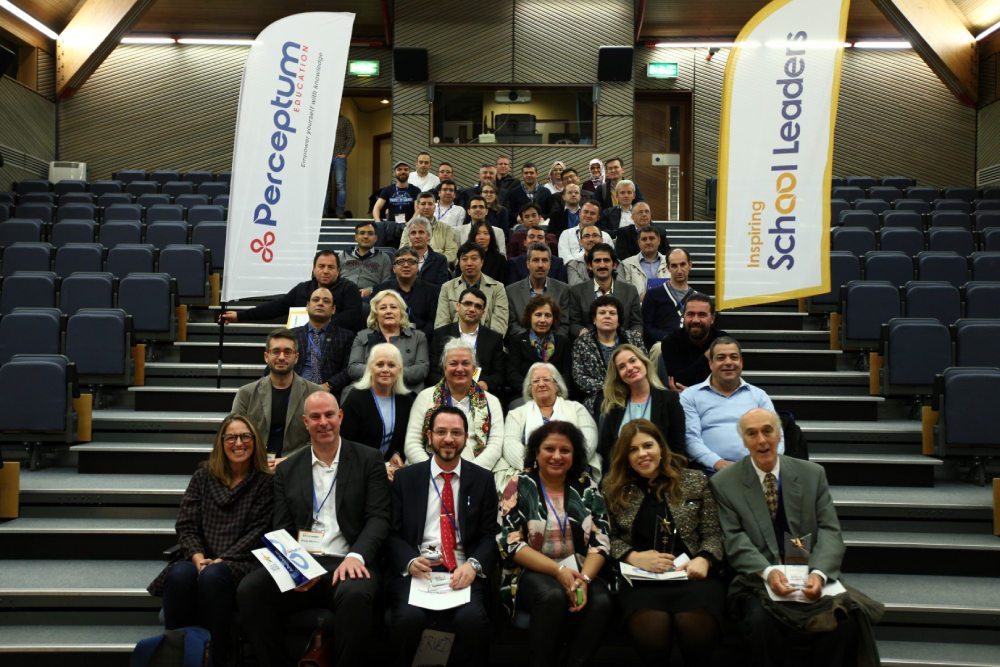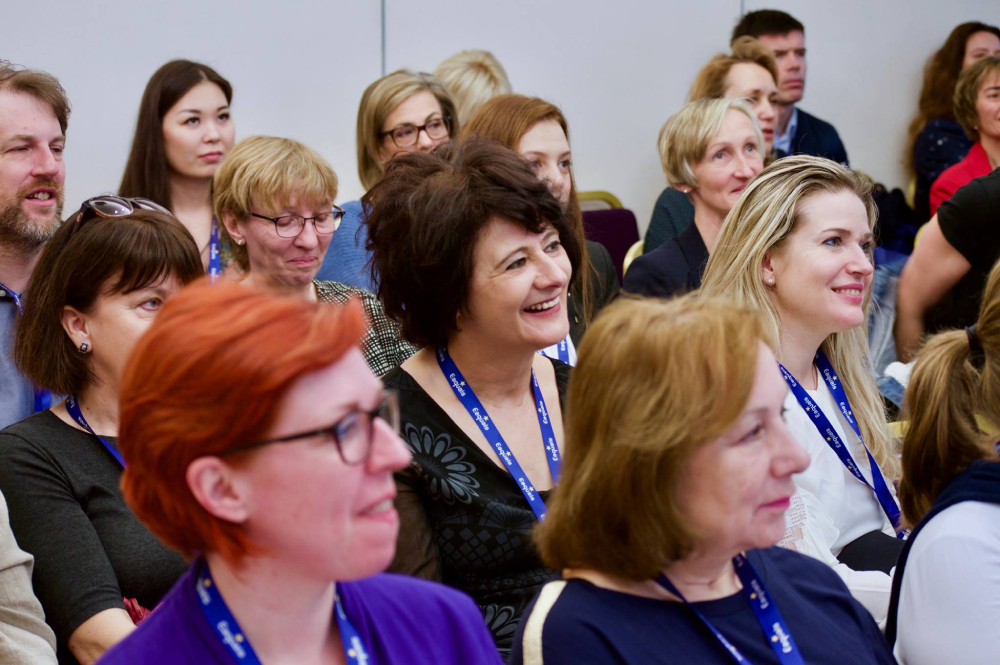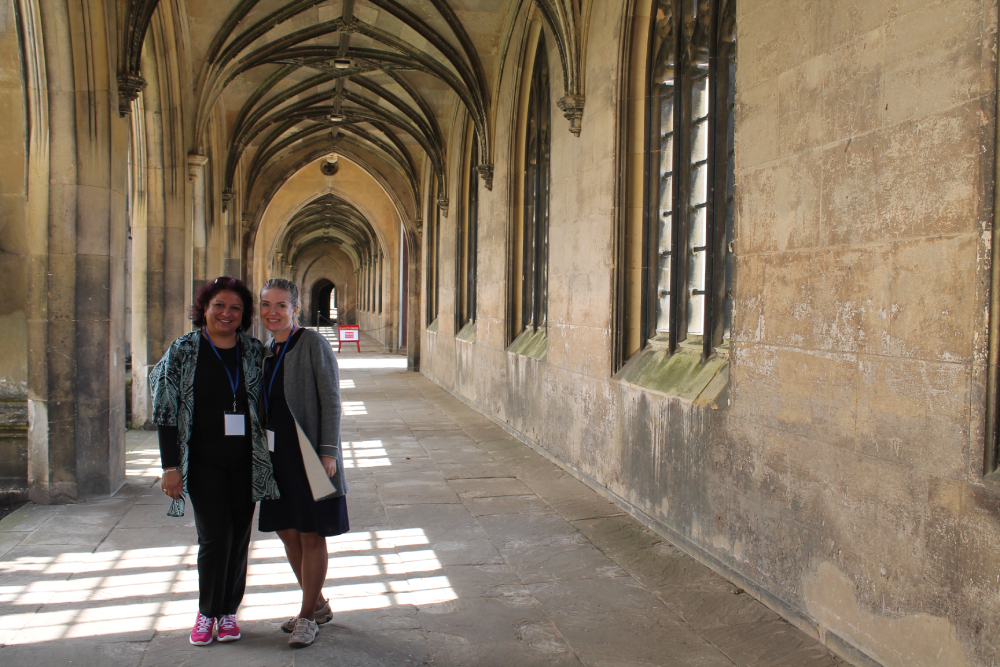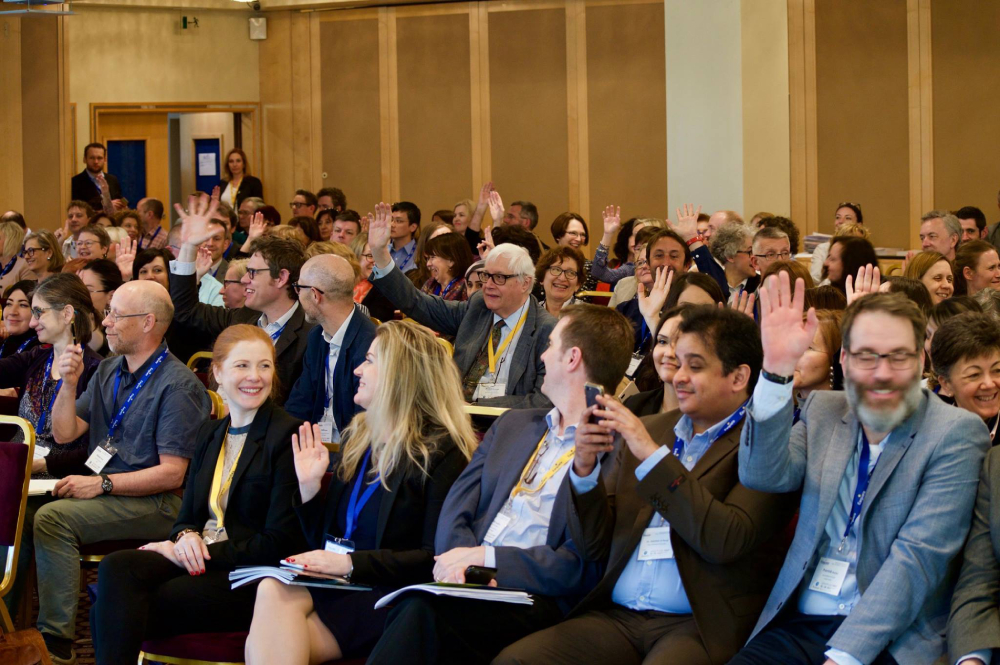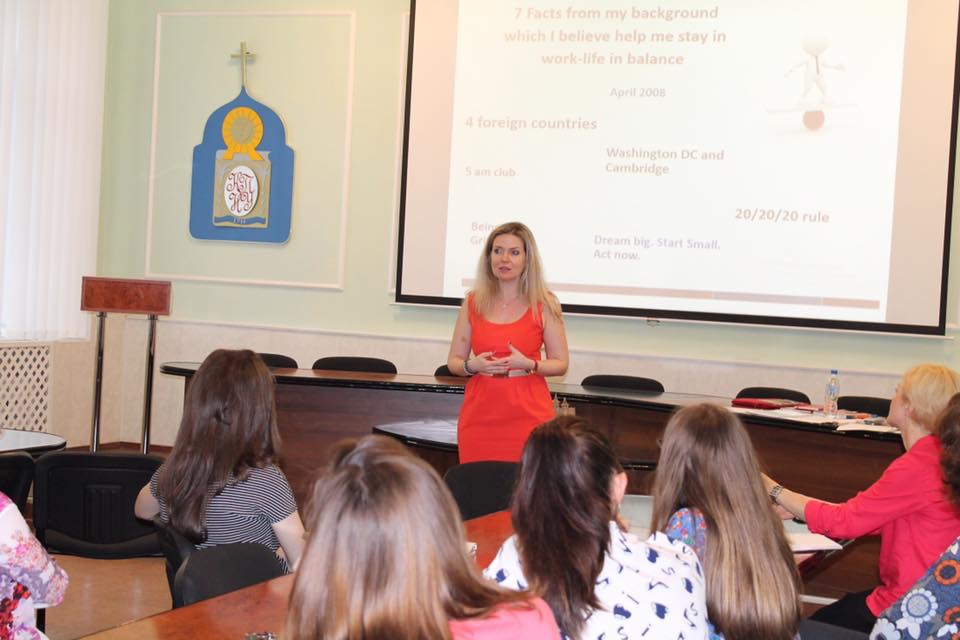Turn On The Light or Interview with Anastasiya Rybak - SARGOI founder, DoS, teacher trainer
From June 25th to 30th, teachers and graduates of the Ivan Ohienko National University in Kamyanets-Podilsky undertook an intensive course in preparation for the Cambridge English Language Test (‘Teaching Knowledge Test’ or TKT) through the SARGOI International Community Training Center.
Anastasiya, you are the founder of SARGOI International Community. Tell us how SARGOI appeared.
I can’t say that SARGOI appeared at a certain point in time. The SARGOI name represents the values and priorities shared by our community, and the people at SARGOI have a certain mindset, habits, lifestyle, personal and professional development, and achievement. So, jokingly, I often say that the journey to SARGOI began at my birth, but it will not end with my old age!
But to be more precise, the concept of the SARGOI community was born as a result of two steps. First I dreamed of creating an English-speaking environment for professional and personal development, and began to look for opportunities for its implementation. Then in 2008, our first foreign language school was launched, which gradually turned into the SARGOI International Community network. In March of 2015, we opened the first SARGOI Concept Office as a franchise in my native Kamyanets-Podilsky.
What attracts you the most to training courses for TKT?
Feeling that I can be useful. In addition to Ukraine, I was fortunate enough to have learning experiences abroad, and gain perspective into the education system in four countries. In England (London and Cambridge, at St. John's College), I studied teaching methods and the main principles of leadership in educational institutions; in Italy (Sorrento), I studied a second foreign language and shared experiences with other teachers; in Spain (Barcelona) I earned a certification as a trainer of teachers and director of studies at an educational institution; and in the USA (Washington and New York City) I represented the interests of the Washington Academy of Leadership, Business and Diplomacy from the Transnational Education Group during an international program for future leaders. In addition, I’ve participated in several international conferences for trainers, school administrators and teachers. I have a lot of interesting stories and insights, so I feel ready and able to encourage and inspire new achievements.
Also, TKT was, personally, my first professional experience in the international community of foreign language teachers. After the opening of our first language school in 2008, I realized that the methods of “Soviet era teaching” were not enough to support the education of our country, so I packed my bags for London. Upon returning from my studies at the Wimbledon School of London, where I was trained in TKT, I had to look for associates and collaborators to develop new, progressive trends in teaching foreign languages, and the method I chose was helping these instructors pass the TKT exam in Ukraine. So the first group was born, where I was also testing myself as a coach, and this was my first achievement in the SARGOI style!
What are your impressions of the group you worked with at our university?
In general, I have very warm impressions from working with you! During the course we had elements of team games, and I have to admit that the graduates, teachers and docents of the department were a good addition to the group. They played and worked in teams, and greatly complemented each other. This group combined a great interest in teaching, and after the TKT course, an awareness of what this striving can do, and how to apply it correctly. Also, I was very pleased to work with teachers from my hometown, as I am a native of the charming Kamyanets-Podilsky, which I like to tell our international partners and colleagues so much. I will look forward to future meetings!
What problems exist today in teaching and in educational institutions?
In order to more clearly understand the problems that have arisen in modern Ukrainian educational institutions, I suggest that we consider the list of skills a successful person must have in the modern world of rapid change.
Ability to work in a team
This is one of the most important practices in the modern rhythm of life, where the team’s synergy can yield amazing results, but unfortunately this skill is not developed either at school or at the university. The modern school educates the individual, but at the same time, a team spirit can create much more than the efforts of a single warrior. What will help educational programs shift their focus from individualist education to collaborative work and developing team skills? Let‘s start with the implementation of compatible design work, training with case studies, role-playing games, and team competitions.
Critical and creative thinking
In order to create an environment to develop creative and critical thinking, education, above all, must take a big step from the traditional, teacher-centered approach to practicing a learner-centered approach. That is, the leader of the educational process is not a lecturer who plays the role of ‘information resource’, or dictates the direction and content of learning, but someone who creates conditions for the students’ development, so that learning occurs taking into account their interests and needs. The role of the teacher should be to create opportunities for internalization, processing, and practice of the material. An important role here is played by tasks and projects for developing interest in reading, writing, self-learning, expressing opinions during debates, presentations, feedback skills and self-analysis.
Ability to learn throughout life
The world is changing rapidly, and in order to keep up with the trend, it is necessary to develop self-learning skills throughout one’s life. To this end, teachers should clearly understand that education is related to autonomy in learning, which is strongly dependent on internal motivation - that is, understanding what and why I am doing, and what strategies will lead me to the desired result. For me as a lifelong learner, for example, it is very important that from time to time I leave my usual environment, my place of work or residence, and immerse myself in the international educational space to share experience and criticism with foreign colleagues, or vice versa, to understand how we are moving in the right direction.
Thus, I propose we concentrate not on the problems that exist in education, but also on a deeper understanding of the profiles of students and educational institutions which yield the best results in the international educational space:
Students who show the best results in learning -
- Attend learning programs where the focus of attention is the student, not the teacher
- Develop independent and creative thinking, as well as autonomy skills
- Practice collaborative or cooperative learning styles, and regularly receive formal and informal assessment and feedback
The most successful educational institutions -
- Are open to dialogue and ready to work with the rapid changes taking place in the modern educational space
- Unite and share the values of “critical friendship”
- Understand that teaching means always learning, as well
- Cooperate and not become competitors
- Encourage methods of co-learning and development among coworkers, instead of dependence
- Bring together new leaders, instead of maintaining a hierarchy
Why is it difficult for students to learn a language?
Students are not interested, or they lack motivation. That is, there is no clear understanding of what benefits they gain from conversing in the language, and most importantly, what steps to take in order to achieve results. And it’s here that the foreign language teacher plays an important role, because he is the light that, by personal example, inspires greater dreams, plans and self-development. It’s here that the role of the teacher is to prove to the student that we are the ones who believe. Find a way to transfer external to internal motivation, draw up an action plan and training strategy, and the student will surprise you with their personal success!
This year the university celebrates its centenary anniversary. What would you like to wish to students and teachers of our university on the occasion of this holiday?
I am very pleased to add to the wishes of the centenary anniversary.
Dear teachers! I wish for you to enjoy the fruits of your labor, and see new horizons for personal and professional development. Let the graduates of each subsequent academic year surpass their previous generations!
Dear students! I wish for you to start the path to yourself today. This is a difficult path, but the reward you receive along the way is priceless. Go forward, always with a sense of gratitude for your experience and the best memories of those who taught you!
Publication from Oksana Farion, 01 August 2018.
Prepared by Alexandra Magdi, teacher of the linguistic center
